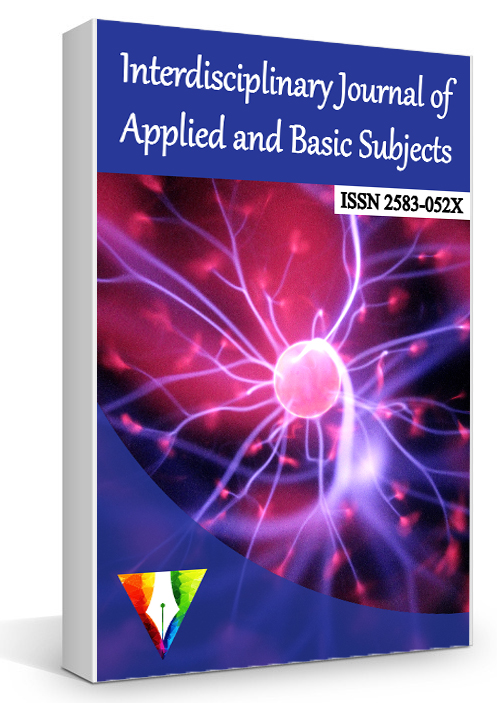Unveiling the Layers of Love and Loss: A Comprehensive Look at the Washington Times Review of "It Ends With Us"
Related Articles: Unveiling the Layers of Love and Loss: A Comprehensive Look at the Washington Times Review of "It Ends With Us"
Introduction
With great pleasure, we will explore the intriguing topic related to Unveiling the Layers of Love and Loss: A Comprehensive Look at the Washington Times Review of "It Ends With Us". Let’s weave interesting information and offer fresh perspectives to the readers.
Table of Content
Unveiling the Layers of Love and Loss: A Comprehensive Look at the Washington Times Review of "It Ends With Us"

Colleen Hoover’s "It Ends With Us" has become a cultural phenomenon, captivating readers with its poignant exploration of love, loss, and the complexities of relationships. The novel’s impact has extended beyond its widespread popularity, sparking critical discourse and generating diverse perspectives. One such perspective is offered by the Washington Times, a prominent American newspaper known for its conservative leanings.
This article delves into the Washington Times review of "It Ends With Us", analyzing its key arguments and exploring the broader context of the novel’s reception. By examining the review’s strengths and limitations, we aim to provide a comprehensive understanding of the book’s critical landscape and its enduring appeal.
The Washington Times Review: A Critical Examination
The Washington Times review of "It Ends With Us," published in 2023, offers a mixed perspective on the novel. While acknowledging the book’s emotional impact and Hoover’s ability to craft relatable characters, the reviewer expresses reservations about the novel’s overall message and its portrayal of certain themes.
The review praises Hoover’s ability to create characters that readers can connect with, highlighting the authenticity of Lily’s struggles and the raw emotions she experiences throughout the narrative. The reviewer recognizes the novel’s success in capturing the complexities of love and the emotional turmoil that can accompany relationships.
However, the review also criticizes the novel’s treatment of domestic abuse, arguing that it perpetuates harmful stereotypes and simplifies a complex issue. The reviewer expresses concern that the novel’s portrayal of abuse could inadvertently trivialize the experience of survivors and contribute to a romanticized view of abusive relationships.
Furthermore, the review takes issue with the novel’s ending, suggesting that it feels rushed and unsatisfying. The reviewer believes that the resolution of the story lacks the depth and complexity that the novel’s earlier chapters promised, leaving readers with a sense of unfinished business.
Beyond the Review: A Broader Perspective
The Washington Times review of "It Ends With Us" reflects a broader trend in the critical reception of the novel. While many readers have embraced the book for its emotional resonance and relatable characters, others have expressed concerns about its handling of sensitive topics like domestic abuse.
The novel’s popularity has sparked debates about the role of literature in addressing social issues, prompting discussions about the ethical considerations involved in depicting sensitive themes. Critics have argued that the novel’s portrayal of abuse could be harmful, potentially romanticizing the experience and perpetuating harmful stereotypes.
Conversely, supporters of the novel argue that its exploration of complex issues like love, loss, and abuse is valuable, offering a platform for discussion and raising awareness about these important topics. They contend that the novel’s ability to connect with readers on an emotional level can be a powerful tool for promoting empathy and understanding.
Exploring Related Searches:
The Washington Times review of "It Ends With Us" has generated significant interest, prompting numerous related searches. Understanding these searches provides further insights into the book’s impact and the diverse perspectives it has evoked. Here’s an exploration of some key related searches:
1. "It Ends With Us" Review New York Times: The New York Times review of "It Ends With Us" provides a different perspective from the Washington Times. This search reveals the diversity of critical opinions surrounding the novel and the varying interpretations of its themes.
2. "It Ends With Us" Book Review Goodreads: Goodreads reviews offer a platform for readers to share their own experiences and interpretations of the novel. This search reveals the widespread popularity of the book and the diverse range of reader responses.
3. "It Ends With Us" Ending Explained: This search reflects the widespread interest in understanding the novel’s ending and its implications for the characters and the overall narrative.
4. "It Ends With Us" Controversy: This search reflects the ongoing debates surrounding the novel’s portrayal of domestic abuse and its potential impact on readers.
5. "It Ends With Us" Movie Adaptation: The search for a movie adaptation of "It Ends With Us" reveals the novel’s immense popularity and the anticipation surrounding a potential film adaptation.
6. Colleen Hoover Books Similar to "It Ends With Us": This search reveals the desire of readers to discover other books by Colleen Hoover that share similar themes and emotional depth with "It Ends With Us."
7. "It Ends With Us" Book Club Discussion Questions: This search reflects the novel’s suitability for book clubs and the desire to delve deeper into its themes and characters through facilitated discussion.
8. "It Ends With Us" Quotes: This search reveals the impact of the novel’s powerful quotes and the desire to share and reflect on its insightful observations about love, loss, and relationships.
FAQs: Addressing Common Questions
The Washington Times review of "It Ends With Us" has sparked a range of questions from readers. Here are some frequently asked questions and their corresponding answers:
1. What is the main argument of the Washington Times review of "It Ends With Us"?
The Washington Times review argues that while "It Ends With Us" is emotionally engaging and features relatable characters, it simplifies the complex issue of domestic abuse and its portrayal could be harmful to survivors. The review also criticizes the novel’s ending, suggesting that it feels rushed and unsatisfying.
2. How does the Washington Times review differ from other reviews of "It Ends With Us"?
The Washington Times review stands out for its critical stance on the novel’s portrayal of domestic abuse, highlighting a concern shared by some readers and critics. Other reviews, while acknowledging the novel’s strengths, often focus on its emotional impact and its exploration of love and loss.
3. What are the main strengths and weaknesses of "It Ends With Us" according to the Washington Times review?
The review praises the novel’s strong characters and emotional impact but criticizes its handling of domestic abuse and its rushed and unsatisfying ending.
4. What are the broader implications of the Washington Times review of "It Ends With Us"?
The review reflects a broader debate about the role of literature in addressing sensitive topics and the ethical considerations involved in portraying complex issues like domestic abuse.
5. What are some of the alternative perspectives on "It Ends With Us" that differ from the Washington Times review?
Some readers and critics argue that the novel’s exploration of domestic abuse is valuable, offering a platform for discussion and raising awareness about a critical social issue. They believe the novel’s emotional impact can be a powerful tool for promoting empathy and understanding.
Tips for Engaging with "It Ends With Us" and Its Reviews:
- Approach the novel with an open mind: Consider the diverse perspectives surrounding the book and engage with the different interpretations of its themes.
- Reflect on your own experiences: The novel’s exploration of love, loss, and relationships can evoke personal reflections and resonate with individual experiences.
- Engage in respectful dialogue: When discussing the novel, prioritize empathy and understanding, respecting the diverse opinions and experiences of others.
- Consider the broader context: The novel’s reception and its critical discourse reflect broader societal conversations about sensitive topics like domestic abuse.
- Explore alternative perspectives: Seek out different reviews and interpretations of the novel to gain a more comprehensive understanding of its impact and its diverse meanings.
Conclusion: A Multifaceted Novel and Its Enduring Impact
The Washington Times review of "It Ends With Us" offers a valuable perspective on the novel’s strengths and limitations. While acknowledging the book’s emotional impact and its relatable characters, the review raises important concerns about its portrayal of domestic abuse and its potentially harmful effects.
The review, however, should not be viewed in isolation. It is crucial to engage with the diverse perspectives surrounding the novel and to consider the various interpretations of its themes. "It Ends With Us" remains a powerful and impactful novel, sparking important conversations about love, loss, and the complexities of relationships. It continues to resonate with readers, prompting discussions about its strengths, weaknesses, and its enduring influence on our understanding of these universal themes.








Closure
Thus, we hope this article has provided valuable insights into Unveiling the Layers of Love and Loss: A Comprehensive Look at the Washington Times Review of "It Ends With Us". We thank you for taking the time to read this article. See you in our next article!